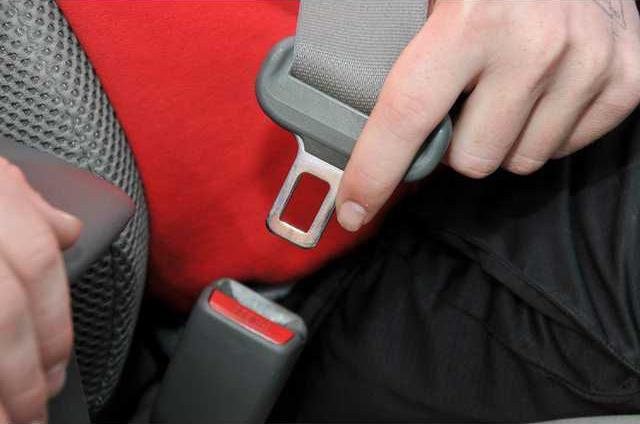Georgia is now the only state in the nation that doesn’t require pickup drivers to wear seat belts.
Last Thursday, state Sen. Don Thomas, R-Dalton, introduced Senate Bill 5, which would classify pickup trucks as passenger vehicles. It passed 49-4 in the Senate, but faces formidable obstacles in the House.
Thomas, a physician, introduces the same bill every year. And House leaders typically refuse to give it a hearing, let alone bring it up for a vote.
"It’s never gotten a warm reception in the House," said Rep. Doug Collins, R-Gainesville. "I know it’s been a hot-button issue among the South Georgia representatives. I spoke last week to a lawmaker from South Georgia, and he was adamantly against it. He said it was a matter of personal freedom."
To make the bill more palatable to farmers, this year Thomas inserted an exemption for drivers who are using their pickup "in conjunction with agricultural pursuits."
Even with that change, Collins is dubious about the bill’s chances.
"This is all about the political process, not so much about the bill itself," he said.
If the bill fails again, it will be disappointing to those who have to deal every day with the consequences of the current law.
"It’s not only discouraging, it almost makes you mad to see all these injuries that could have been prevented," said Capt. Tim Peebles, emergency medical services coordinator for Hall County. "Also, if it doesn’t pass, it will be a detriment to the state of Georgia, because of the loss of funding."
Georgia will lose an estimated $4.6 million in federal highway funds this year because of its refusal to comply with guidelines on seat belt use.
But emergency workers are more concerned about the cost in human lives.
"(Passing the law) seems like a no-brainer to me," said Peebles. "People travel just as fast in a pickup truck as in a car."
Dr. Mohak Davé, an emergency physician at Northeast Georgia Medical Center, said he sees cases several times a week in which unbelted drivers crashed and were thrown out of a pickup truck.
"When they’re ejected, their whole body is subjected to tremendous forces," he said. "We see severe injuries to the head, spine, chest and abdomen. We see lots of pelvic fractures, and a much higher incidence of traumatic death."
When people do survive, they often spend months in rehabilitation and may never fully recover from their injuries. Their lifetime medical bills could total millions of dollars.
"It’s certainly very frustrating," said Davé. "You have to balance personal liberty versus public health and patient safety. It seems silly when you consider that Georgia is trying to create a trauma care system, but one of the best solutions to trauma is to prevent it."
Jim Shuler, spokesman for the Governor’s Office of Highway Safety, said if the percentage of pickup drivers who buckle up were equal to the rate for other passenger vehicles, it would prevent 105 deaths on Georgia roads each year.
He said between 2002 and 2007, the most recent year for which data are available, the number of fatal wrecks involving pickup trucks increased by 14 percent.
"Unrestrained pickup occupants are 37 times more likely to be killed than those who are restrained," Shuler said. "And unrestrained pickup occupants (who survive the initial crash) are four times more likely to be admitted to the hospital rather than treated and released from the ER."
Shuler said in 2007, there were 87,545 crashes in Georgia involving pickups, with more than 16,000 injuries and 277 deaths.
Bob Dallas, director of the Governor’s Office of Highway Safety, said a disproportionate number of the victims are teens and young men.
"(Amending the seat belt law) would spare families the heartache of injuries that they may have to deal with for the rest of their lives," he said. "You hate to see a 19-year-old kid in a wheelchair."
Despite the failure of the bill to pass during previous legislative sessions, Dallas remains optimistic.
"I think the exemption for agriculture will make a difference," he said. "I’m very hopeful that it will pass this year."

